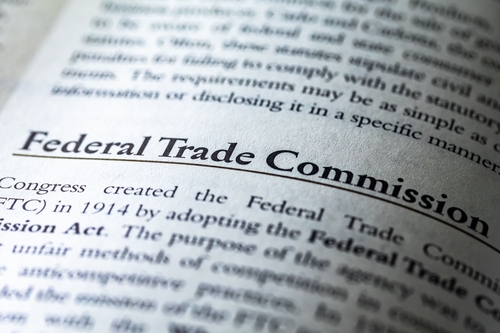Under the Biden administration, the Federal Trade Commission (FTC) attempted to pursue a robust regulatory approach to restrict noncompete agreements. Those efforts were derailed in August 2024, however, when a federal court enjoined the FTC rule (which had tried to outlaw most noncompetes). Employers that thought noncompete agreements wouldn’t be an issue with the Trump FTC are forewarned: The FTC will focus on employers whose noncompete agreements, in the FTC’s view, restrict competition and entrepreneurship.
Overbroad Noncompete is Gateway to FTC Complaint
On September 5, 2025, the FTC announced it filed a complaint against Gateway Services, a national pet cremation company with over 100 locations serving 17,000 veterinary clinics, as well as approximately 1,800 employees across the country who signed noncompete agreements.
Beginning in 2019, newly hired Gateway employees were required to sign a noncompete agreement regardless of their job duties. The affected employees ranged from executives to laborers, and the agreements precluded employees from working in the pet cremation industry anywhere in the United States for one year.
According to Daniel Guarnera, director of the FTC’s Bureau of Competition, “The anti-trust laws protect workers from noncompete agreements that harm competition, including by preventing workers from switching to better-paying jobs or starting their own businesses. We will protect workers by enforcing the laws against anticompetitive noncompetes.”
What You Should Know
You should consider the following when it comes to noncompete and related agreements:
- ·Employers’ primary concern is often the confidentiality of business information and the solicitation of their customers by a former employee. If that’s what you really want to protect against, then evaluate whether confidentiality, nondisclosure, or nonsolicitation agreements could address the concern effectively.
- Don’t overreach. The Gateway noncompete allegedly prohibits employees from working anywhere in the United States for a competing business. Seek only the geographical restriction that’s needed to protect the business, and make sure the period of the restriction is reasonable, as well.
- Scope the agreements to be proportionate to employees’ job responsibilities and the employer’s investment. Courts are more likely to enforce a noncompete agreement applied to a sales representative than they will a noncompete agreement applied to a janitor. This is even more true if the sales representative works from a company-developed virtual Rolodex of clients, uses confidential pricing models, and/or has received company training in technical information about the product line or in specific sales techniques.
- Include the agreement as a stand-alone document. If it’s in a handbook with “employment-at-will” and “this handbook isn’t a contract”-type language, it’s unlikely to be enforceable.
Bottom Line
Most states have laws restricting noncompete agreements, and some also limit nonsolicitation agreements. Consult with counsel regularly to ensure your agreements limiting your employees’ subsequent employment options comply with the laws of the states where they may be enforced.
Richard Lehr is an attorney with Lehr Middlebrooks Vreeland & Thompson, P.C., in Birmingham, Alabama, and can be reached at 205-323-9260 or rlehr@lehrmiddlebrooks.com.




